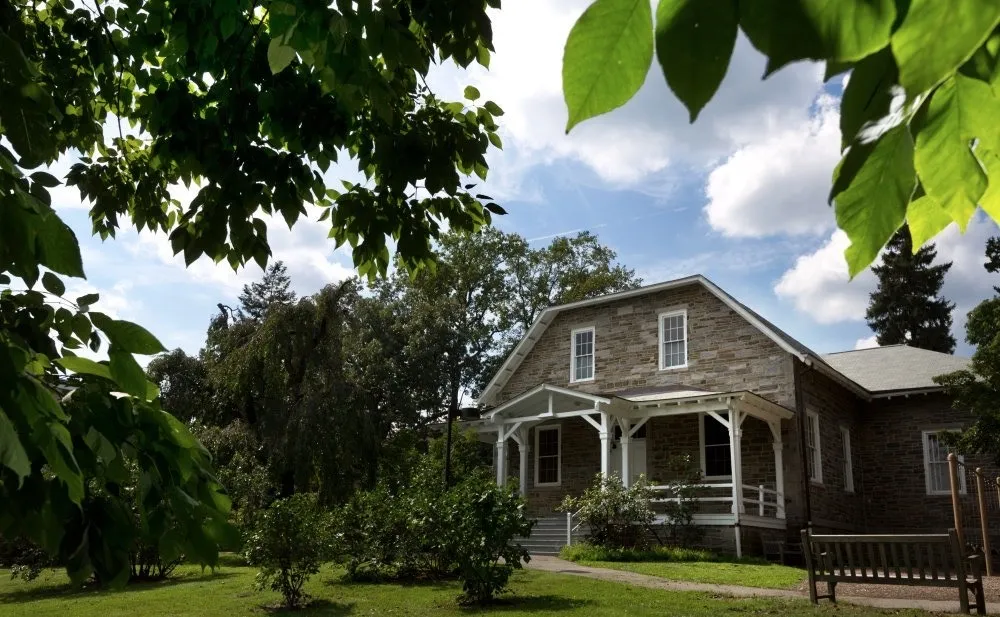- Microfilm Access
The oldest meeting records in the Library date from 1665. To guard against damage to fragile originals, most of the records have been microfilmed. We also have microfilm for many domestic and foreign Quaker meetings for which we do not hold the originals. A comprehensive in-house card file to this extensive microfilm collection is maintained on-site. Researchers are encouraged to email FHL to learn whether particular records are represented in the collection. This material is not available for inter-Library loan.
- Identify a Meeting
Before searching for information about individual members of the Society of Friends, it is useful to know the name and history of the monthly meeting of which they may have been members. The best site for narrowing this search is Tom Hill's quakermeetings.com. It is particularly useful to search by state and county, keeping in mind that vital records of Friends were maintained by the monthly meeting -- which may have included persons who worshiped in a number of meeting houses in what may have been a large geographical area. Hill's database includes not only the dates of establishment and, if relevant, dates of the monthly meeting's laying-down, but also the names of its preparatives and useful information about the current location of records, if known.
- Meeting House Photograph Collection
Thousands of images of Friends’ meeting houses have been brought together digitally in this online collection. Photographs from both the Quaker Collection of Haverford College and Friends Historical Library at Swarthmore College are included. Browse the Meeting House Photographs Collection
- Quaker Meeting Catalog
FHL and the Haverford College Quaker & Special Collections (the other major depository for Quaker records in the Philadelphia area) have collaborated to create a joint catalog describing their holdings. In some cases, a single meeting's records may be divided between Haverford and Swarthmore, but all the records are described in the Quaker Meeting Catalog
- How to Deposit Meeting Records
Meeting clerks should consult "Depositing Quaker Meeting Records" [PDF] about depositing meeting records. It covers frequently asked questions about what to deposit in the archives, paper vs. electronic documents, ownership and access regulations, and more. We welcome further questions, as well as inquiries about arranging deposits to the Friends Historical Library, by email (friends@swarthmore.edu) or telephone (610-328-8496).
A few Yearly Meetings have developed guidelines for the maintenance and preservation of monthly meeting and committee records. Clerks and recorders are encouraged to consult these guidelines, even if their own Yearly Meeting has not developed specific instructions. A couple relevant, although somewhat dated, resources include the Records Committee of Baltimore Yearly Meeting's Handbook on Records: their Creation, Maintenance, and Preservation in the Meeting (1989), and Thomas C. Hill's survey of historical and current Discipline Provisions Regarding Records [PDF] (1998, 2003).
- Meeting Records Online
Many Quaker meeting records are online via Ancestry.com. On campus patrons may access Quaker records on Ancestry.com with this link (you may need to click the link twice). Ancestry subscribers with individual accounts may access them here. Records of the Monthly Meeting of Friends of Philadelphia, Northern District, Southern District, and Philadelphia Quarterly Meeting - may be accessed through the Philadelphia Congregations Early Records Project.




